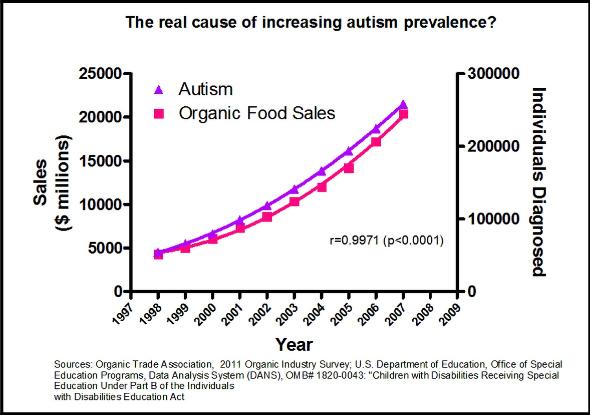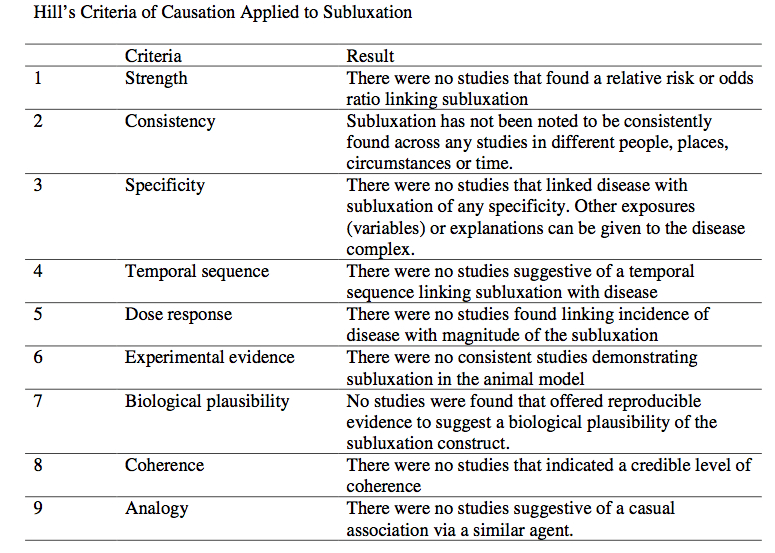Veterinary epidemiology
Data: 3.09.2018 / Rating: 4.6 / Views: 536Gallery of Video:
Gallery of Images:
Veterinary epidemiology
Veterinary Epidemiology is an invaluable reference source for veterinary general practitioners, government veterinarians, agricultural economists and members of other disciplines interested in animal disease. It will also be essential reading for undergraduate and intermediatelevel. Veterinary Epidemiology is an introductory text to the general concepts and fundamental principles of veterinary epidemiology. This book is composed of 20 chapters that consider the. Scope Veterinary Epidemiology is devoted to the publication of highquality research intended to elucidate the dynamics of animal pathogens transmission, occurrence. Veterinary epidemiology is principally concerned with the study of diseases or conditions in animals that affect certain population or patterns of disease conditions within a population of animals, by which they are affected, the location of affected animals, and the patterns of disease through time can be studied by veterinary epidemiology. Welcome to ISVEE15 and Chiang Mai Learning Sharing Today, Building a Better Life Tomorrow The 15th International Symposium of Veterinary Epidemiology and Economics (ISVEE 15) is coming to Chiang Mai, Thailand, on 12 16 November 2018. The Veterinary Epidemiology course, offered by Utrecht University, is highly suitable for veterinary researchers with an interest in epidemiology, who want to understand the concepts of epidemiology and apply these concepts in data analysis. Pfeiffer Veterinary Epidemiology An Introduction 3 Basic Concepts of Veterinary Epidemiology Learning Objectives At the completion of this topic, you will be Japan's largest platform for academic ejournals: JSTAGE is a full text database for reviewed academic papers published by Japanese societies Veterinary Epidemiology is an introductory text to the general concepts and fundamental principles of veterinary epidemiology. This book is composed of 20 chapters that consider the. Discover a faster, simpler path to publishing in a highquality journal. PLOS ONE promises fair, rigorous peer review, broad scope, and wide readership a perfect fit. Veterinary Epidemiology is an invaluable reference for veterinary general practitioners, government veterinarians, agricultural economists, and members of other disciplines interested in animal disease. It is also essential reading for epidemiology students at both the undergraduate and postgraduate levels. Dirk Pfeiffer is Professor of Veterinary Epidemiology at the Royal Veterinary College in London, UK. He has designed and taught international training courses in epidemiology all over the developed and developing world, from Australia to Vietnam. This Veterinary Epidemiology and Public Health, offered by London University, provides animal health specialists, epidemiologists and public health specialists with an understanding of the conceptual basis of veterinary epidemiology and public health. American Veterinary Epidemiology Society. The mission of the American Veterinary Epidemiology Society (AVES) is to Candidate must have a Ph. D, MD, or equivalent degree in Biology, Public Health, Veterinary Medicine, Epidemiology, or other relevant discipline, and 10 plus At the Applied Veterinary Epidemiology (AVE) research group, rather than specializing on one animal species or one specific health issue, we focus on studying factors relevant for the prevention and control of diseases at the interface of livestock, wildlife, and humans in different environments, globally. Associate Professor of Epidemiology, Department of Veterinary Anatomy and Public Health, College of Veterinary Medicine, Texas AM University, College Station, Texas. Paws Claws Animal Hospital, Plano, Texas. The aim of this book is to provide a general introduction to veterinary epidemiology for anyone interested in the subject area, including under and postgraduate veterinary students, as well as The MPH program with a Veterinary Epidemiology Concentration provides advanced graduate training in epidemiology and the opportunity to take electives in one or more of the following areas: VET MPH Brochure. Master of Public Health Program with a Veterinary Epidemiology Concentration brochure. MSc Veterinary Epidemiology About the programme This new online MSc is the first and only programme in Veterinary Epidemiology which uses a systems approach to learn about the fundamental drivers of disease dynamics and patterns of infection seen in animal host communities. Part of the Practical Veterinarian series, this concise handbook will be useful from the classroom into veterinary practice. A quickreference guide, the material in this handbook is presented in an outline format ideal for use in solving clinical problems. Veterinary epidemiologists specialize in understanding infectious diseases in animals. They conduct research with the goal of discovering important information, such as what a disease's agent is. The RVC Veterinary Epidemiology, Economics and Public Health (VEEPH) group is a thriving body with over fifty academic staff, contract researchers, PhD students and Senior Clinical Training Scholars conducting research with a direct impact on shaping policy both at national and international level. Developed by academic experts at the Royal Veterinary College such as Prof Dirk Pfeiffer, Professor of Veterinary Epidemiology these programmes aim to provide animal health specialists, scientists and public health specialists with an understanding of the conceptual basis of veterinary epidemiology and public health. The Association for Veterinary Epidemiology and Preventive Medicine is a professional membership organization for veterinarians and others involved in the field of veterinary epidemiology. The AVEPM distributes educational information and coordinates events for its members that help them maintain their continuing education requirement. The MSc Veterinary Epidemiology is a oneyear masters or diploma course in vet epidemiology, covering public health, veterinary science and animal health, taught by the Royal Veterinary College and LSHTM, University of London, UK Global Veterinary Epidemiology Capacity Development Workshop Coordination and Development of Field Epidemiology Training Programmes for Veterinarians 16 March 2018 Veterinary Epidemiology Skills and Capacities are at the core of veterinary services to enable to prevent, control and eradicate animal diseases. Veterinary Epidemiology is an invaluable reference for veterinary general practitioners, government veterinarians, agricultural economists, and members of other disciplines interested in animal disease. It is also essential reading for epidemiology students at both the undergraduate and postgraduate levels. MSc Veterinary Epidemiology MSc Veterinary Epidemiology. This is a joint programme provided by the School and the Royal Veterinary College (RVC). There is a shortage of trained veterinary epidemiologists and there are excellent career opportunities for graduates. This course provides training in essential methodological skills for the. Veterinary Epidemiology: An Introduction by Dirk Pfeiffer, 2010. Please note As this is an online course, you do need access to an internet connection in order to be able to follow lectures, complete assignments and communicate with fellow participants. The 3rd edition of Thrusfields Veterinary Epidemiology maintains the strengths of previous editions. It continues to have a rich array of tables and figures, and provides relevant examples that should give veterinary students the necessary context to appreciate epidemiological concepts. The overall Veterinary the study of disease transmission showcase, computed at 24. 8 Billion of every 2014, is set to reach 34. 39 Billion by 2019, holding a CAGR of 7. The mission of the American Veterinary Epidemiology Society (AVES) is to advance the field of veterinary epidemiology and public health. Today's top 468 Veterinary Epidemiology jobs in United States. Leverage your professional network, and get hired. New Veterinary Epidemiology jobs added daily. The veterinary epidemiology group is located within the AsiaPacific Centre for Animal Health (APCAH) at The University of Melbourne. Veterinary epidemiology is principally concerned with the study of disease within populations (although it may also be used for investigation of issues such as animal welfare and productivity). The Association for Veterinary Epidemiology and Preventive Medicine (AVEPM) is pleased to announce the program for the 2018 Schwabe Symposium honoring the lifetime professional achievements of. Epidemiology is the study and analysis of the distribution (who, when, However, the term is widely used in studies of zoological populations (veterinary epidemiology), although the term epizoology is available, and it has also been applied to studies of plant populations. The mission of Veterinary Epidemiology at the College of Veterinary Medicine at Cornell University is to apply population medicine principles and methods to research, teaching, and service with an emphasis on advanced quantitative methods. Veterinary Epidemiology is an invaluable reference for veterinary general practitioners, government veterinarians, agricultural economists, and members of other disciplines interested in animal disease. It is also essential reading for epidemiology students at both the undergraduate and postgraduate levels. Goal: Veterinary epidemiology is a key component in the global grand challenges of disease control, food security and climate change. Consequently, there is a need to improve our ability to. We want ISVEE 14 Yucatan 2015 to be a forum for ISVEE Delegates in academia, public services, and private sectors to create a vision for the future of veterinary epidemiology at the local, regional, and international levels. An Introduction to Veterinary Epidemiology Mark Stevenson y EpiCentre, IVABS z Massey University, Palmerston North, New Zealand July 28, 2008 Contents For veterinary epidemiology, this intervention is to enhance not only health but also productivity. Distribution implies that diseases and other health outcomes do not occur randomly in populations; determinants are any factors that cause a change in a health condition or other defined characteristic. Veterinary Microbiology, Veterinary Epidemiology, Public Health, Veterinary public health Abrupt events and population synchrony in the dynamics of Bovine Tuberculosis Disease control strategies can have both intended and unintended effects on the dynamics of infectious diseases. Veterinary Epidemiology: An Introduction. Are you studying a course in veterinary epidemiology? Do you need a book that explains epidemiology in an understandable way. One of the very few online veterinary epidemiology courses available, this course is highly suitable for veterinary researchers with an interest in epidemiology, who want to understand the concepts of epidemiology and apply these concepts in data analysis. Veterinary Epidemiology is an invaluable reference source for veterinary general practitioners, government veterinarians, agricultural economists and members of other disciplines interested in
Related Images:
- Tony tony tone
- Barry Manilow The Greatest
- Blood prince 2018
- Son of anarchy french
- Jay z hits
- Wicked tuna s03e11
- I know that girl chanel
- The piece of string conflict
- The future sound of nostalgia
- Civilization 5 complete
- The eagle eye
- Tharu 3 Sinhala Novel Pdf Free Download
- Les belles histoire
- Avira premium 10 key
- Wiggles wiggle time
- Real steel 720p french
- The dark summer
- Quantitative Methods For Business Students
- Csr plc driver update for bluetooth stereo audio
- Muse origin of symmetry 320
- Alvin and the chipmunks 2018 brrip
- Barcelona vs Manchester United
- Dark Souls 1 pc
- Cholescintigraphy Developments In Nuclear Medicine
- This is tek
- 24 s09e08 x264
- Tommy lee dvd
- Leslie cameron bandler books
- Architecture 3d crack
- Demain est un autre jour
- Small size movie
- Electrical mechine book
- Taboo american style 3
- The the conquerors
- The Mistborn Trilogy
- Espera No Centeio
- Jay z watch the trone
- Fox hound 2 1080p
- Lizzie borden took an ax 2018
- Jules de corte
- The dark knight 200
- Ashes to ashes s01
- Greatest hits rar
- Lone ranger ganool
- EL SUEO DE ELLIS
- Rubber band man
- Look whos talking 1989
- American chopper season 6
- Lycoming Io 360 B1g6 Parts Catalog
- In the west 1968
- 2018 movie nl sub
- Window key generator
- Sim 3 updates
- Dvd to ps3 converter
- Skyla paige teens
- Cscs Card Practice Test Labourer
- GOD OF WAR PC PCSX2
- Never Judge a Book
- The Pebble and The Penguin
- Wells Fargo Custom Choice Investment Plan
- Nicole kidman the invasion
- Financial accounting scheme of work
- Once upon a time s1e05
- Friend of my daughter
- Maynard live from london
- Oil patch production services odessa tx movie
- 2018
- The princess brid
- Pdf El Poder De Tu Mente
- El gabinete del
- Coke boys french











